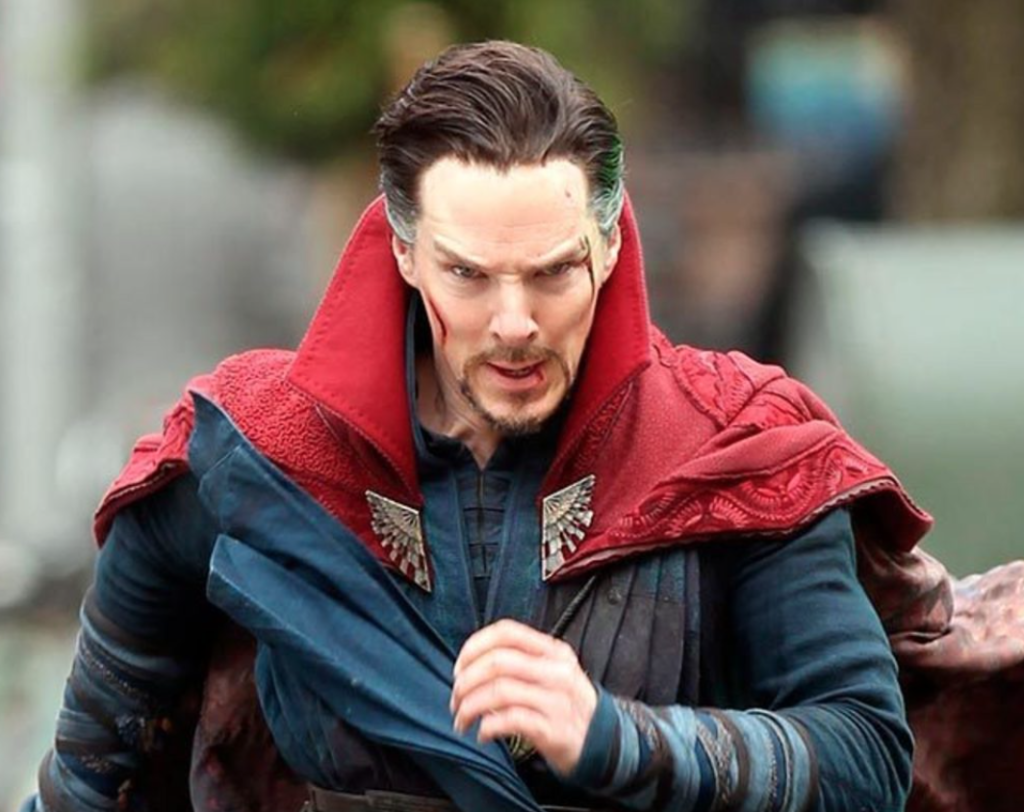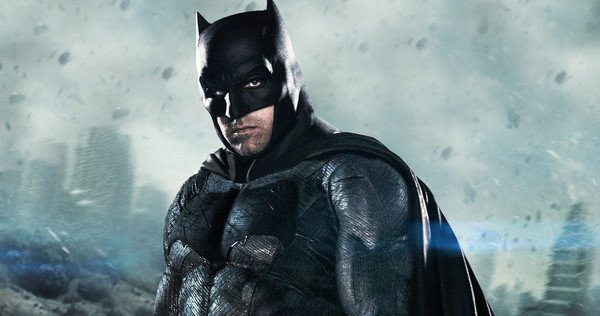Genre: Superhero
Premise: After an arrogant neurosurgeon’s hands are bludgeoned in a car accident, he seeks help from a mystical woman in the mountains of Nepal, but gets far more than he bargained for.
About: Doctor Strange was part of Marvel’s “Phase 3” program, which was both a strategy and an ideology. “3” stood for the most experimental of the Marvel properties, and therefore the films they had the least amount of confidence in. Well that confidence has been restored, as the mind-bending fresh-as-a-Michigan-Cherry-in-June film secured $85 million bucks this weekend, upwards of $20 million more than most prognosticators predicted. Chalk up another win for the studio that can’t stop cranking out the hits. Marvel wins again. Dr. Strange was co-written by Jon Spaiths, who famously wrote the best unproduced screenplay of the last 10 years, Passengers – which comes out this December. I don’t think a screenwriter can have a bigger month than Spaiths is having.
Writer: Jon Spaiths (earlier drafts by Scott Derrickson & C. Robert Cargill).
Details: 115 minutes
Let’s get straight to the biz-nass. Doctor Strange is a good movie. Even if Jayden Smith endorses it.
But it got me thinking about that decade old question: Why are Marvel movies so much better than DC movies? There was a heavily publicized conversation that took place last week where famed writer, Bret Easton Ellis, no stranger to controversial statements, shared that the Ben Affleck-helmed Batman project over at Warner Brothers has upwards of 30 major script problems.
This statement inspired many thoughts, so many that I didn’t know what to do with them. The first is that of all the people in the industry, Ben Affleck is near the top of the list of people who care about the script. He owes his entire career to script development, as Good Will Hunting is one of the most famously drawn-out development processes ever, with rumors that the script hit over a hundred drafts.
Except that it went on to win Affleck a screenwriting Oscar, and teach him a valuable lesson. The script is king. Get it right and everything else falls into place.
But more troubling was the reaction of the WB execs Ellis was talking to. Their reaction was “We don’t care.” Their argument was that 70% of the theaters this movie will play in won’t contain English-speaking audiences. So the script, in their minds, is the last thing that matters. To them: Ben Affleck, an Oscar winning director, is directing. Ben Affleck, A-list actor, is acting. And the franchise is, arguably, the most valuable franchise in history.
This is where things get speculative. But my guess is that these “execs” don’t understand how screenwriting works. Their observation that the film won’t be playing in front of people who speak English implies they believe the long-standing ignorant assumption that screenwriting is dialogue.
But everyone who understands screenwriting knows that the heavy lifting is done in the structure, the plotting, and the character work. Once that’s taken care of, you can hire any solid writer to fill in the dialogue. To that end, it doesn’t matter what language you speak. If the plotting is terrible. If the second act isn’t building. If the characters aren’t compelling. — YOU’RE BORED!
With that said, it’s a statement that’s troubling in what it implies. That this new globally-dominated marketplace is going to dictate that same type of approach from everyone. It doesn’t matter if the observation is wrong. If enough people believe it, it might as well be true.
But then I watched Dr. Strange and I realized… DC? And your execs? You’re wrong.
The difference between the entertainment level of Dr. Strange, a no-name super hero up until the promotional blitz for this movie began a month ago, versus Batman, the most famous superhero ever, is decidedly in Dr. Strange’s favor. And the reason for that is the screenplay. This is a compelling character who was perfect for the movie treatment who gave us an experience that was different from the same old nonsense we get week in and week out with these ancient DC superheroes.
Let’s start with the title character. Dr. Strange contains one of the ideal character arcs to explore in a screenplay. He’s a pompous arrogant asshole who thinks he knows it all. What do you do to a pompous arrogant asshole who thinks he knows it all? You take away the only thing he’s good at. In this case: his ability to perform surgery. Once you strip away a person’s identity, they must struggle. And since struggle creates conflict and conflict creates drama, the movie writes itself.
As cool as Batman is, his character “complexity” comes from two places, one a melodramatic cliche and the other a gimmick. The first is that he watched his parents die when he was a child. The second is that he has a secret identity. That combination is fun. He’s got to battle his demons. He’s got to hide who he really is.
But is it really a complex character in the way that Doctor Strange is a complex character? In Strange’s case, we’re actually exploring HIM. Like as a PERSON. His identity has been taken from him, and he’s now asked to adopt a new identity that he doesn’t believe in in order to get his life back. That’s a much more interesting character journey if you ask me.
And if you doubt this, go back and watch Batman vs. Superman. It’s steeped in these over-the-top melodramatic flashbacks of Batman watching his parents die. Who the fuck cares? It’s so simplistic, it’s almost embarrassing.
This is why Batman, the character, got overshadowed even in the best treatment of his movies – under Nolan. The Joker had so much more shit going on inside his head, that a basic parent-death backstory combined with an eye-roll-inducing 10,000th super hero with a secret identity plotline just couldn’t hold up.
And the worst thing about Batman is that it can’t even have fun with its secret identity plotline because it takes itself so damn seriously. I mean at least with Spider-Man, they have fun with that stuff. With Batman, it’s a chore. You can almost feel everyone involved groaning as Batman uses his fake voice to disguise that he’s really Bruce Wayne.
One thing I’ve found interesting about movies like Dr. Strange is that because they don’t have a lot of money, they have no choice but to explore character. Character exploration is much cheaper than huge set-pieces. The “learning” phase of Dr. Strange goes on for a really long time. Upwards of 50 pages. And because of this, we get to know this person and therefore CARE about him when he gets to those set-pieces.
Batman vs. Superman took the opposite approach. They tried to get in as many trailer-friendly set-pieces as possible so their film could be a smorgasbord of action. Yet it was this exact approach that contributed to the movie’s emptiness.
It was sad, really. It’s like they sensed this and figured if they could throw in a couple of flashbacks of Batman losing his parents, that would be enough to make us “feel” for the character. Instead, it launched him, and us, right down Cliche Creek without an originality paddle.
Dr. Strange is a testament to if you want to survive in this new world of oversaturated comic book movies, you’re going to need to differentiate yourself. It’s why this and Ant-Man and Deadpool became hits. They’re different. These old guard superheroes like Superman and Batman are going to get eyeballs on notoriety alone. But since they’re not the only game in town anymore, they can’t rest their laurels on their budgets and their special effects. They’ll need to find a way to make the characters interesting again. If they don’t, they risk becoming – duh, duh, duhhhhh – a bottom-feeder franchise.
And you know what? Maybe that decade-old question can be boiled down to the simplest of answers. The reason Marvel movies are so much better than DC movies is that they leave you feeling good. Just like a good comic book did when you were a kid. A DC movie, on the other hand, always leaves you feeling a little bit down. Even Suicide Squad. If DC can fix that part of the equation, maybe they can close the gap. But right now, they’re the Cleveland Indians. And Marvel is the Cubs.
[ ] What the hell did I just watch?
[ ] wasn’t for me
[xx] worth the price of admission
[ ] impressive
[ ] genius
What I learned: Uninspired cliche flashbacks of a traumatic moment in a character’s history (watching your parents die) is not character development. It may provide context. But it is not character development. Character development is creating a character identity and challenging that identity throughout the course of the movie. In this sense, it might be best to call it “Character Challenging.” So in The Matrix, Neo doesn’t believe he’s the one. So he gets numerous “character challenges” throughout the film that challenge this notion – building jumping, fighting Morpheus, the fight with one of the agents in the Subway. Ultimately, he believes, which is is when he finally defeats the bad guys.



